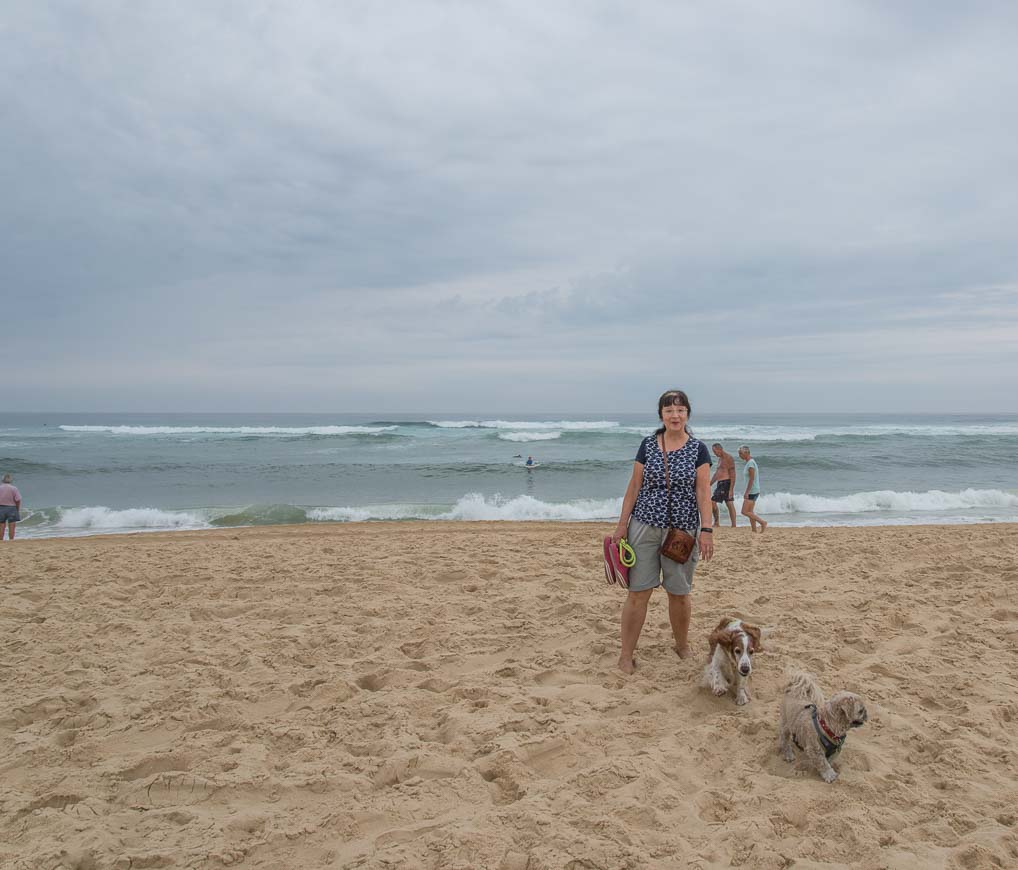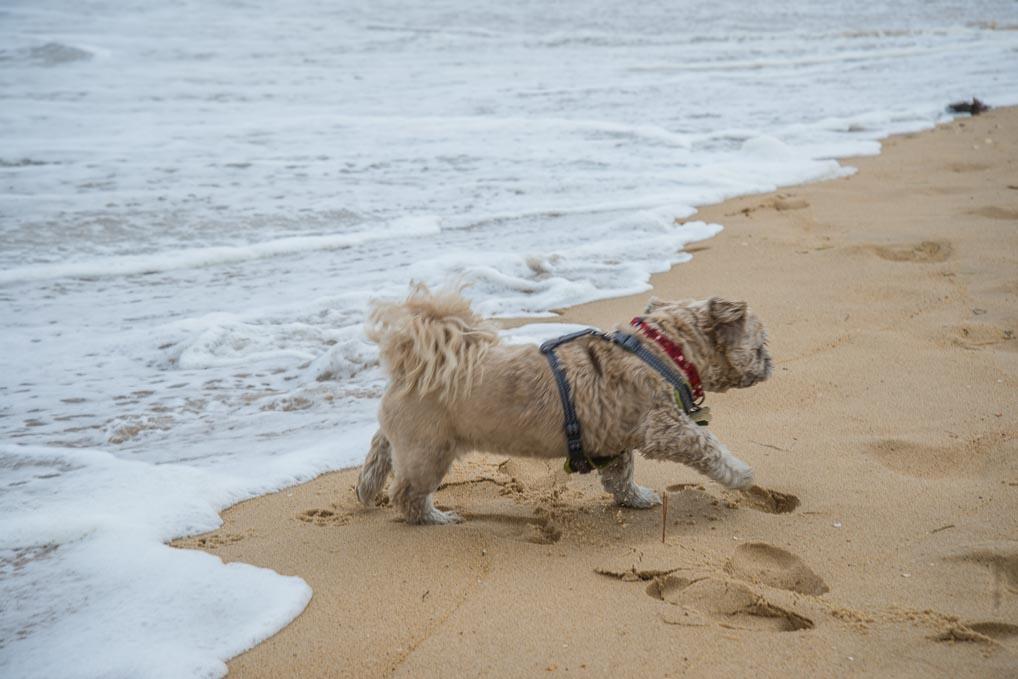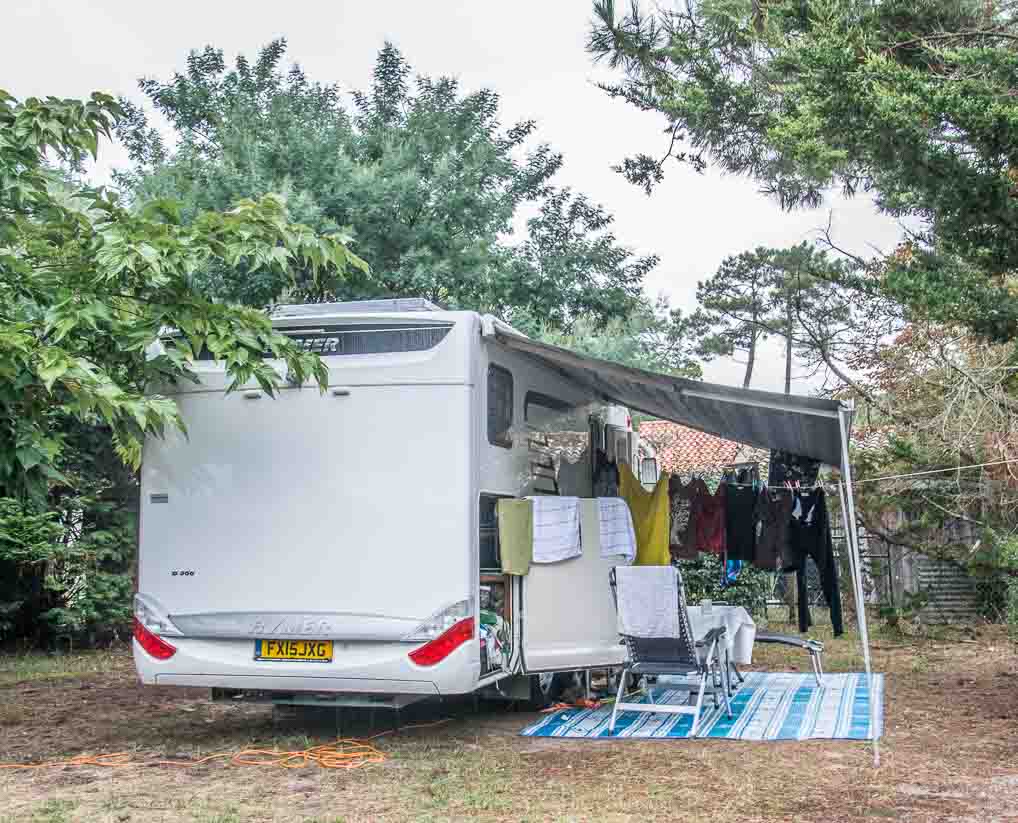Last night the campsite restaurant turned out to be not too bad. Not too good either, but that’s to be expected. There was a choice of pizza, pizza, pizza, pizza and one or two other things, so we chose pizza. At least they were cooked in a proper pizza oven, which is why I said it was not too bad.
The day dawned overcast, but still nice and warm. It was my turn for the early morning dog walk, which as always with me was long enough for the dogs to do their business but not much more.

Sarah and the dogs
Our main entertainment and exercise for the day involved a walk down to and along the beach. The sand is some of the softest we have ever experienced and the dogs had a wonderful time walking and playing on the tide line. Melek was constantly taken unawares by the rushing tide, but showed a most uncharacteristic turn of speed to avoid getting too wet.

Melek makes good his escape with an unusual turn of speed
We even found a section of sand which squeaked when we walked on it. The Whistling Sands on the Llyn Peninsular in Wales is a whole beach named after the phenomena but this was just a smallish section, but mildly interesting nonetheless.

The beach
Sarah decided that she was going to do our first wash of the trip, given the reasonable €4 for a washing machine, but no sooner had she carefully hung it out that the rain started. Not heavy, but persistent. We moved the clothes so they were all under our awning, but nothing dried until the sun re-appeared.

Washday in the rain
This afternoon I finalised our plans for the next week. I have thought long and hard about St. Sebastian, which is the first large city over the border. I’ve heard great things about this city, but most of them relate to the great food and their famous version of tapas, called pinxos. The nearest place to park Basil is three miles out of the centre and with two dogs in tow I finally decided we were unlikely to get the most out of St. Sebastian and so have decided to skip it. So our next stop, our first in Spain, will be Pamplona tomorrow afternoon. One of the problems in Spain is that in most cities dogs are not allowed on public transport, so where aires, parking places or campsites are miles out of the centre of the city visiting is going to be difficult. We had little problem with the dogs on buses, trams, trains or boats in dozens of different countries last year, but Spain is apparently one of the least dog friendly in Europe, which is a shame.
Finally as one of an occasional series on the anomalies, from a British perspective, of continental culture: I’ve noticed when we are on campsites in Britain the toilets, showers etc. are always very clearly marked as men or women’s. As soon as you cross the channel, toilets in public spaces, such as petrol stations, museums and the like are similarly clearly marked. However, campsite toilets are often a different matter and our current campsite is a good example. When you approach the toilet block there is no indication from the outside as to whether you are entering the men’s or women’s. The up tight Brit (me in this case) edges gingerly inside to try to discern whether these are mixed toilets (not unheard of); whether he’s walked into the ladies (often happens); the men’s (a sigh of relief); or as in the case of Club Marina it’s a hybrid arrangement, with men’s and women’s toilets, showers and wash cubicles all in the same block but marked with symbols of the different sexes, but not very clearly. Is it just British lovers of rules and regulations that find such arrangements difficult and sometimes embarrassing to negotiate or is it the same for all nationalities and the campsites are just playing an elaborate joke for their own amusement?
